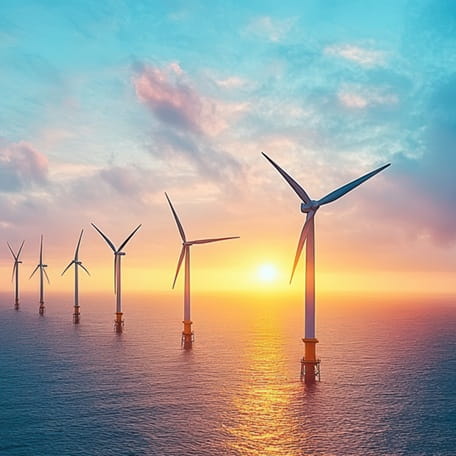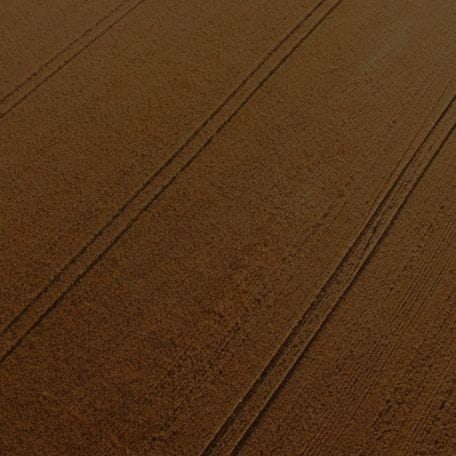Spending time in the garden in summer may often involve financial outlay but exercising green fingers over stock choices could lead to financial rewards.
This is the first article in the series, you can read the other articles here:
Vestas: A renewable investment opportunity
Investing in the economy of the future and ensuring that future is as stable and sustainable as possible has never been as important. As the world enters a new stage of environmental and technological change, there are huge challenges around how we manage resources, improve our health and build greater financial and digital resilience.
To address these challenges and make the most of the undoubted opportunities, the Sustainable Investment team at Liontrust looks at the world through the prism of three mega trends:
- Better resource efficiency
- Improved health
- Greater safety and resilience
Within these, the team has identified 20 themes which all contribute in different ways to creating a cleaner, healthier and safer planet and which are at the heart of its investment process.
In our new Sustainable Investment series ‘Stocktake’, each time we will take a look at a stock that illustrates clearly and is aligned to one of the 20 themes.
This month we focus on US company Trex, which fits into the mega trend of Better resource efficiency and the investment theme of ‘Delivering a circular materials economy’.
With finite resources on earth, recycling remains a huge part of the shift to a more sustainable world. But to make better use of materials, we need to consider the whole life cycle rather than just the ‘waste’ stage and move towards a more circular economy. This is based on three core principles; designing out waste and pollution, keeping products and materials in use, and regenerating natural systems – we believe companies built on these lines should benefit from this trend.
Trex
A manufacturer of composite decking listed in the United States, Trex has a market capitalisation of $6bn.
Plastic waste is a huge societal issue, with estimates that the world uses over 500 billion plastic bags each year – equivalent to c. 63 bags per person.
The US firm Trex is looking to address this issue, by using recycled content to make up c.95% of the inputs that go into making its products. Most of this is plastic bags, but it also includes other types of waste such as wood chippings. Trex is therefore exposed to the theme of Delivering a circular materials economy.
Decking is a discretionary item, which would normally be C rated on our matrix. However, given the high levels of recycled content, and the fact that composite decking is replacing wooden decking, the Product Rating is upgraded to a B.
Independent third-party life cycle analysis of its decking product compared with pressure treated lumber over a 25-year period estimated that Trex decking results in 42% fewer greenhouse gas emissions (GHG) and 48% fewer criteria air pollutants1. On top of this, the company diverted over a billion pounds of reclaimed wood and polyethylene film from landfill to be used in its products in 2022.
With regards to managing the key Environmental, Social and Governance issues, the company scores 3 on our Management Rating. Some aspects of its business are best in class, such as the manufacturing standards; 99% of its water use was recycled in 2021, resulting in 16.5 billion gallons of water being recycled during the year. However, we would like to see improvements in the health and safety performance, as the number of safety incidents has risen in recent years, as the business has scaled up rapidly. Despite being relatively new shareholders on the register, we have already started engaging with the company on health and safety as well as closing the loop and recycling its own products when they come to be replaced. The biggest hurdle is developing the incentives and infrastructure to make it worthwhile for the installers to send the old product back to Trex.
Composite decking has significantly higher upfront cost than wood. Trex’s lowest range product is typically twice as expensive per square foot than wood. However, over 25 years of ownership, lower maintenance costs result in even the higher-end products being competitive from a cost perspective. Wood rots, warps, splinters, and requires seasonal painting, sealing, or staining. Not only does this require effort and time, but it can also be costly.
As a result, composite decking has consistently taken market share from wooden decking. This is a sizeable opportunity, with the decking and railing market estimated to be $8bn – each 1% share is therefore worth $80m in sales, meaningful in the context of Trex’s $1.1bn in sales in 2022.
As part of our research process, Chris went to Virginia to visit the company. This involved a factory tour with the CEO to see in person how Trex turns plastic bags and waste wood chipping into a consistent and premium board. There are no patents stopping others from copying Trex, rather it is an iterative process, like perfecting a recipe that has been refined over 25 years, trying different material combinations, processing temperatures and pressures. Trex claims its biggest competitor is wood, but it also has a major composite competitor called Azek, which claims to have up to 90% of recycled content in its decking business. Upon closer inspection of Azek’s annual report however, on average across its product range, the figure is more like 56%. We believe this is indicative of just how hard it is to get the recycling rates as high as Trex has managed through decades of research.
The combination of structural growth with its strong market position has resulted in impressive growth – from 2014 to 2023 sales compounded at 10% per year2.
The high portion of recycled content means that Trex is less exposed to the price of virgin plastic than peers and while its cost of goods are not free, they are cheaper, resulting in gross margins approaching 40%. After sales and marketing expenses, research and development, the company ends up with operating margins over 20%. As Trex is a manufacturer, there is considerable operating leverage that comes through as utilisation of the production plant grows. This works both ways of course, and after strong growth during the pandemic, there was a slowdown in sales and a destocking from its customers (more on this later) which resulted in operating margins troughing at 8% in the final quarter of 2022.
The business is investing in expanding capacity by building a modular manufacturing facility that will be able to expand steadily as demand for its products continues to grow. We like businesses that have opportunities to reinvest, but the rate of return on these investments will be crucial in determining our return as shareholders, given our long-term investment horizon. Reassuringly, over the past decade, the business has averaged a return on invested capital in the region of 28%.
Most of Trex’s sales are generated through wholesale distribution networks selling to retail outlets, which in turn sell to professional contractors and homebuilders. Trex also sells direct to Home Depot and Lowe’s where the end customers are do-it-yourself individuals and contractors. Presence in these retail outlets is important for brand awareness. The upside of this approach is that it keeps sales and marketing costs fairly low, and distribution costs very low indeed.
Potential risks
The downside of this approach is the customer concentration; its three largest customers typically make up 60% of the Group’s sales, a risk worth keeping in mind. When we spoke to the company about the power dynamic between with these large distributors, Trex argued the distributors have no incentive to not stock Trex’s products given the company has such a dominant place in the composite decking industry.
This customer concentration also carries risks from an inventory management perspective; in the early part of 2022, the distributors were nervous about the underlying economy and after a period of intense stocking following pandemic-driven shortages, they decided to let their inventory run down, hurting Trex’s sales. While this does impact short term results, as it has in 2022, the good news about this inventory is that it is non-perishable. Trex are not forced sellers and so it can sit on the inventory until demand comes back into the market.
Over the past year, there has been considerable macro-economic uncertainty and therefore little investment appetite for companies that are exposed to consumer discretionary purchases that can be deferred in a downturn. These concerns can create opportunities for long-term investors. During the pandemic, sales growth accelerated, and analysts linearly extrapolated this growth. This resulted in the shares regularly trading at 50 times earnings that were unusually high, due to the operating leverage inherent in the business. Since the start of 2022, analyst earnings estimates for the next couple of years have been reduced by around 50%. Thanks to the broader correction in longer duration stocks as interest rates have moved up, as well as sentiment around consumer discretionary companies, the multiple the market was prepared to pay for the business has also reduced. The result was a peak to trough fall in the share price of over 70%. So, although we acquired shares at what looked like a high multiple (c. 27x at the start of October last year when we added the company to the Global and Managed portfolios), we believe we acquired shares at depressed earnings. The company is also held in the newly launched US Sustainable Growth fund.
Summary
We expect that when the economy starts to recover, sales will continue their previous path of low double-digit growth and margins should expand back towards historic levels. Thanks to the broader concerns surrounding the economy, we were able to buy this position last year at a price that offered us considerable upside to our usual 10% annual hurdle rate.
1The criteria air pollutants include particle pollution, ground-level ozone, carbon monoxide, sulphur dioxide, nitrogen dioxide, and lead. They are of particular concern due to the negative impact on people’s health and the environment.
2Have used consensus estimates for Trex 2023 sales in this calculation in an attempt to fully capture pandemic pull-forward
KEY RISKS
Past performance is not a guide to future performance. The value of an investment and the income generated from it can fall as well as rise and is not guaranteed. You may get back less than you originally invested.
The issue of units/shares in Liontrust Funds may be subject to an initial charge, which will have an impact on the realisable value of the investment, particularly in the short term. Investments should always be considered as long term.
Some of the Funds managed by the Sustainable Future team involve foreign currencies and may be subject to fluctuations in value due to movements in exchange rates. Investment in Funds managed by the Sustainable Future team involves foreign currencies and may be subject to fluctuations in value due to movements in exchange rates. The value of fixed income securities will fall if the issuer is unable to repay its debt or has its credit rating reduced. Generally, the higher the perceived credit risk of the issuer, the higher the rate of interest. Some Funds may invest in derivatives. The use of derivatives may create leverage or gearing. A relatively small movement in the value of a derivative's underlying investment may have a larger impact, positive or negative, on the value of a fund than if the underlying investment was held instead.
DISCLAIMER
This is a marketing communication. Before making an investment, you should read the relevant Prospectus and the Key Investor Information Document (KIID), which provide full product details including investment charges and risks. These documents can be obtained, free of charge, from www.liontrust.co.uk or direct from Liontrust. Always research your own investments. If you are not a professional investor please consult a regulated financial adviser regarding the suitability of such an investment for you and your personal circumstances.
This should not be construed as advice for investment in any product or security mentioned, an offer to buy or sell units/shares of Funds mentioned, or a solicitation to purchase securities in any company or investment product. Examples of stocks are provided for general information only to demonstrate our investment philosophy. The investment being promoted is for units in a fund, not directly in the underlying assets. It contains information and analysis that is believed to be accurate at the time of publication, but is subject to change without notice. Whilst care has been taken in compiling the content of this document, no representation or warranty, express or implied, is made by Liontrust as to its accuracy or completeness, including for external sources (which may have been used) which have not been verified. It should not be copied, forwarded, reproduced, divulged or otherwise distributed in any form whether by way of fax, email, oral or otherwise, in whole or in part without the express and prior written consent of Liontrust.

















